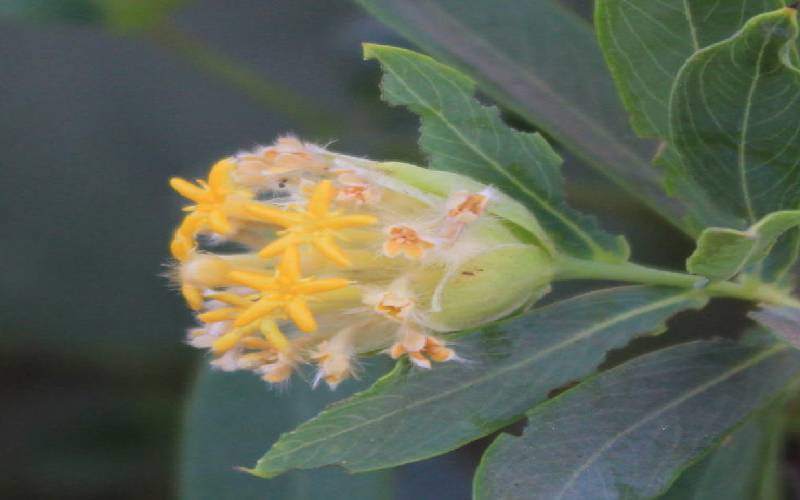 They say one man's meat is another man's poison. A group of researchers might just have proved this.
They say one man's meat is another man's poison. A group of researchers might just have proved this.
The team, led by Wycliffe Makori Arika of Kenyatta University, found that a local plant whose bark has for years been used by hunters to poison arrows can also be used to reduce weight and treat obesity-related complications.
The study published last month found that the leaves of Fish Poison Bush or Gnidia glauca (pictured), which has also been traditionally used to treat indigestion, can treat memory loss and reduce weight faster than common conventional medicine.
Observed effects suggest Gnidia glauca could be an alternative to current medication against complications of obesity, such as learning and memory loss.
Research suggests obese people, especially children overweight from diets high in sugar and saturated fat, may have poor memory and learning abilities.
“Chronic consumption of a high-fat diet is associated with a decline in learning ability, and an increased risk of depression, dementia, and Alzheimer’s disease,” the researchers point out.
Learning abilities
Published in the journal Neural Plasticity on September 3, 2019, the study indicates that extract from the plant reduced obesity and improved memory and learning abilities.
Tested against a common conventional medicine, orlistat, used for reducing obesity, the extract was found to perform better.
Called ‘muthira or muchingiri’ among the Mbeere, ‘kiris’ among the Marakwet, the plant is a well-known medicinal plant used to treat sore throat, abdominal pain, wounds, burns, and snake bites.
The Samburu have historically boiled the bark, for several hours, and the residue smeared on arrow tips. In other communities it is used to stun fish, making it easy to catch them hence the name Fish Poison Bush.
The current study was investigating whether there is any scientific evidence to support the plant’s use in traditional cures.
The team had experimented on 30 rats. One half of the rats was fed on a high-fat diet for six weeks to induce obesity. The other was fed on normal rat diet and did not become obese.
After six weeks, the rats on high fat diet were exposed to the plant extract while the other was put on orlistat.
The plant had been collected at Makunguru village in Embu County. Results showed all the rats exposed to high-fat diets had increased obesity throughout the study period.
“On the other hand, the treatment of rats with the reference drug, orlistat, and the plant extract caused a persistent decrease in obesity,” concluded the study.
Weight loss
Moreover, the authors say rats treated with the plant extract indicated a higher weight loss compared to those put on the drug orlistat.
High-fat diet was seen to impair the rats’ short term memories. But those treated with the plant extract during the experiment were seen to have recovered memory and improved learning skills.
The authors attributed this to the plant's ability to protect the body against obesity-induced cell damage.
 The Standard Group Plc is a multi-media organization with investments in media platforms spanning newspaper print
operations, television, radio broadcasting, digital and online services. The Standard Group is recognized as a
leading multi-media house in Kenya with a key influence in matters of national and international interest.
The Standard Group Plc is a multi-media organization with investments in media platforms spanning newspaper print
operations, television, radio broadcasting, digital and online services. The Standard Group is recognized as a
leading multi-media house in Kenya with a key influence in matters of national and international interest.











